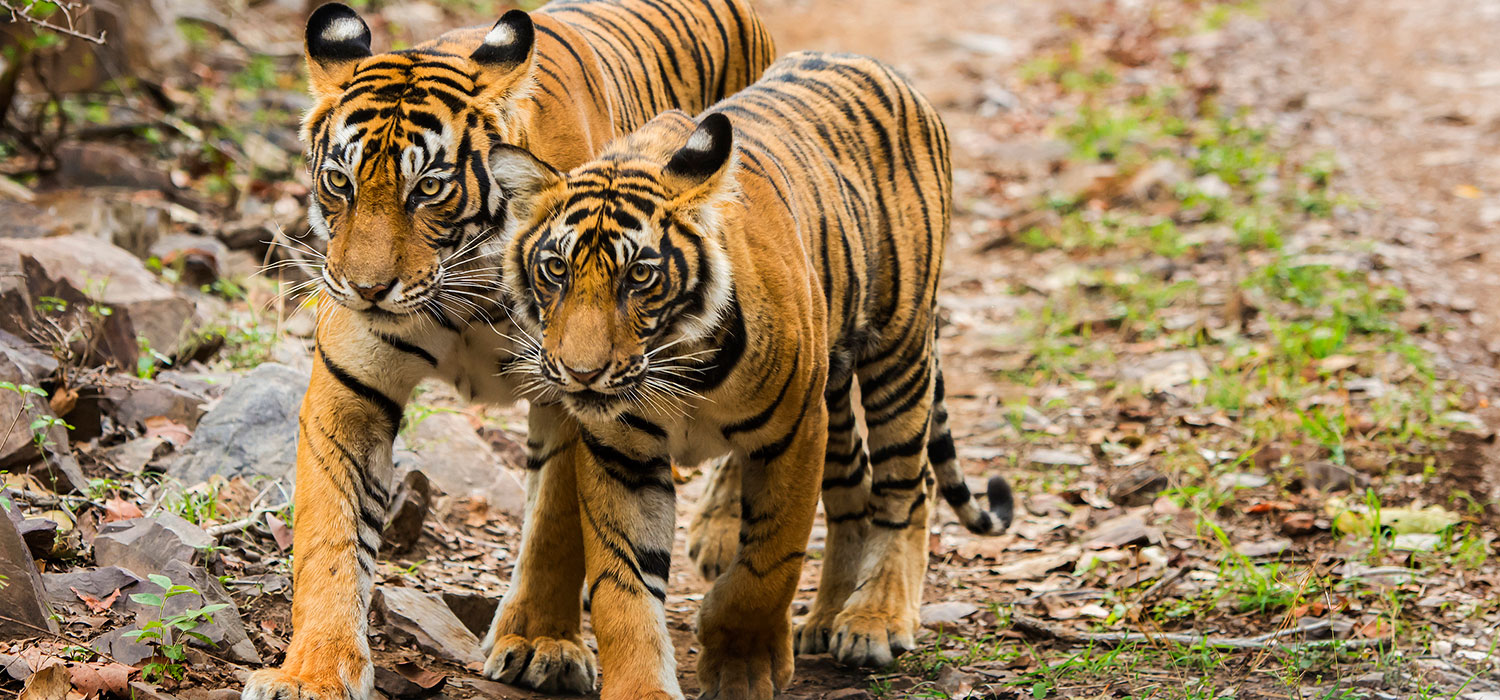
Welcome to the third article of our wildlife series. In this series, we will talk about interesting facts about endangered animals and what we can do to help to conserve their populations. In this edition, we will talk about the mighty and fearless hunter: tiger.
Throughout human history, tigers have been used to symbolize ferocity and prowess. They have appeared in ancient Chinese paintings dated back to 600 years BC, on Korean military uniform during the Choson dynasty, and as national animals in many countries to depict courage, strength, as well as protection. But what is so special about tigers that makes them the world's favorite ferocious animal?
Well, tigers are essentially kings of the forest. As one of the biggest cat species in the world, tigers can easily claim the crown at the top of the food chain. But it doesn’t happen instantly. The cubs start learning to hunt at six months of age even though they are still dependent on their moms. And they only leave their mother when they are two years old. Yes, they’re just like us when it comes to motherly love.
As they grow older, they gain the physical traits that make them the perfect hunter. Generally live and hunt alone, tigers have long and powerful hind legs that allow them to leap up to 30 feet forward. Moreover, their roar could be heard from 2 miles away, and scientists also found that it possesses a paralyzing effect that works on other animals. Well, no wonder why many people around the world love to use them as a symbol of power, right?
But we shouldn’t be afraid of them and just let them conquer their natural habitats. The fact of the matter is, despite the mighty image, tigers are one of the most endangered animals on the planet. The sad news is that there are less than 5% of tiger populations remaining in the wild today. One of the subspecies of tigers, the Sumatran tiger, which is native to Sumatra island of Indonesia, is listed as critically endangered by the IUCN.
Okay, so what? No, don’t “so what” the importance of this issue. The adverse effects caused by declining tiger populations might not be evident at first, but they affect the health of the entire ecosystem. When there are only a few predators in the wild, the prey population will boom. With too many herbivores, there will be fewer vegetations in the forest, and animals could wander off to human settlements as a result. We surely don't want that to happen.
As a pulp and paper company based in Indonesia, we share the responsibility to help protect Sumatran tigers. There are an estimated population of around 69 Sumatran tigers across our suppliers’ concessions in Sumatra, and we are doing our best to protect them from poachers and human-animal conflicts. These magnificent creatures are one of our priority animals for conservation.
We've been working with the government, Forum HarimauKita, and others in our efforts to preserve the Sumatran tigers population. And we are proud to tell you that we’ve recently received an award from Indonesia’s Ministry of Environment and Forestry for our efforts in this matter. To monitor their movements, we have installed 177 camera traps around our concession areas. On top of that, we also conduct regular patrols, train forestry staff and contractors, and educate communities around our concessions about tiger conservation. On the company level, we also continue implementing sustainable forest management to ensure the protection of Sumatran tigers and other protected species of flora and fauna.
Now at this point, you must have wondered what you can do to help save these critically endangered animals. Well, there are many ways out there, but you can start with more simple things such as sharing this article online on your social media. The more people read about tigers and why we have to protect them, the more awareness we build.
The next step would be being a wise and responsible consumer, especially when buying paper products. This includes making sure that the toilet paper and tissue you are using have a PEFC certification. The certification ensures that the company complies with responsible and sustainable ways of managing their forests while paying attention to the environment and wildlife--including our favorite tigers.
Let's continue to work hand in hand to protect Sumatran tigers, so our future generations can also witness them in their full glory, not just from the paintings and statues!
